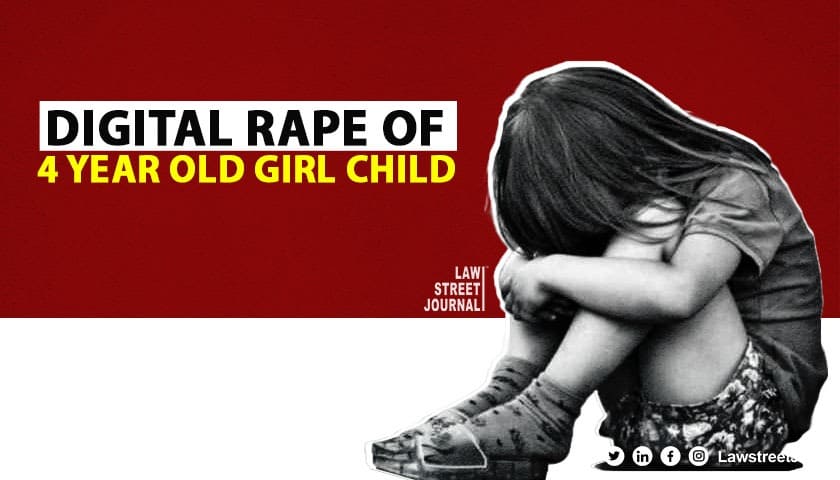NEW DELHI: The Delhi High Court has reduced the sentence from 20 years of rigorous imprisonment to 12 years in a case where a 28-year-old man was convicted for committing 'digital rape' on a 4-year-old girl child, says he was a young man of around 28 years at the time of commission of the offence. As on date, he is around 38 years of age and has a substantial life ahead of him. He also has an aging mother to look after."
Relying on and ruling in favour of reformative justice principles, the single-judge bench of Justice Amit Bansal reasoned that, There is no straight-jacket formula under criminal law for sentencing an accused. Objective of sentencing an accused should be that of deterrence and reformation. Restorative justice under criminal law aims at giving an opportunity to the convict to reform and become a useful contributor to the society, once released from jail.
The bench also noted that the convict had already undergone more than 9 years out of the sentence of 20 years awarded to him.
Relying on reports in this regard, the Court stated that the convicts conduct in jail had been satisfactory and during incarceration he had been working as a langar sahayak, also earning a remission of 6 months.
Further noting that no punishment had been awarded to him during his period of incarceration, nor had he been involved in any other offence, the Court went on to reduce the convicts sentence.
Therefore, the Court partially allowed the convicts appeal against a Trial Court verdict which had sentenced him to 20 years of rigorous imprisonment for his act of having committed digital rape on a child of 4 years at the time of incident.
Facts of the case
The Court was hearing an appeal filed by the convict for setting aside the judgment of conviction passed by the Additional Sessions Judge (POCSO).
The Sessions Court had convicted him for the offences punishable under Section 376(2)(i) of the Indian Penal Code, 1860 (IPC) and Section 6 of the Protection of Children from Sexual Offences Act, 2012 (POCSO Act).
He had been sentenced to rigorous imprisonment for a period of 20 years for the conviction under Section 6 of the POCSO Act and to pay a fine of Rs. 15,000/-.
No sentence was awarded to the appellant under Section 376 of the IPC in view of Section 42 of the POCSO Act.
The brief facts of the case were that on September 9, 2014, a PCR call was received by the police from the father of the child victim, regarding sexual assault on his daughter, who was aged four and a half years at the time of incident. Information was recorded and the police proceeded to meet the child victim.
The police made inquiry with the child victim and she was taken to the All India Institute for Medical Sciences (AIIMS) Hospital, where her medical examination was conducted and the MLC was prepared.
Statement of the mother of the child victim/complainant was recorded on September 9, 2014, who stated that her daughter was taking tuitions from her neighbour, Archana.
On September 8, her daughter had gone for tuitions, but returned early. On enquiring why she came early, the child victim had stated that the convict, who was the brother in law of the tuition teacher, had removed her underwear and inserted his finger in her private parts. The tuition teacher had entered the room, and seeing the incident, she beat up the appellant.
After hearing about the incident, the mother of the child victim went to the house of the accused and confronted the teacher, who confirmed the incident.
Based on the statement of the mother of the child victim, FIR No.486/2014 under Section 376 of the IPC and Section 6 of the POCSO Act was registered at Police Station Fatehpur Beri leading to the convicts arrest.
Importantly, the child victim in all her statements, had supported the case of the prosecution and there were no inconsistencies in her statements.
Cause Title: Pradeep Kumar v State







![Delhi High Court Sets Aside Arbitral Tribunal's Award Against NHAI in Highway Project Delay Case [Read Judgment]](/secure/uploads/2023/07/lj_9605_23374c2e-392c-4491-a2fe-f2f12fc5272f.jpg)
![Delhi Court Rejects Stay Request in Defamation Case Against Rajasthan CM Ashok Gehlot [Read Order]](/secure/uploads/2023/08/lj_5208_80de1ddc-d76a-4f7f-b180-408e3ae14fb4.jpg)





